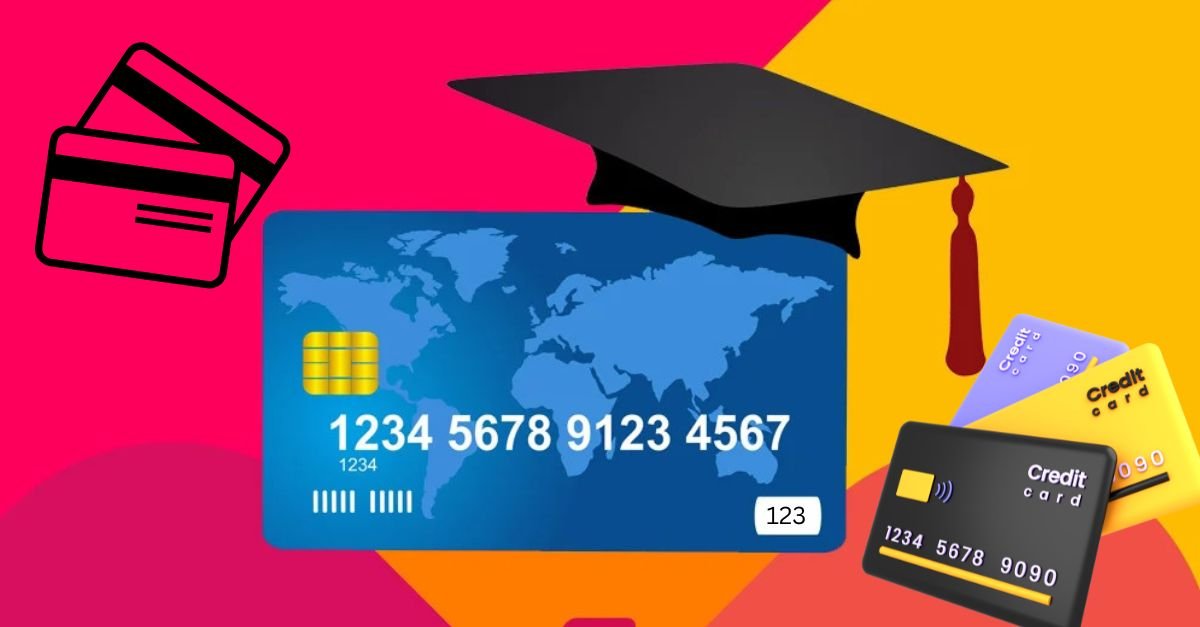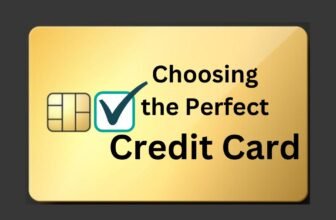
Are credit card debts weighing you down? Are you also burdened by the thought of repaying your student loans? What if there was a way to kill many birds with one stone? In this ultimate guide, we will show you how to use your student loans strategically to pay off your credit cards and take control of your financial future.
Student loans come with lower interest rates compared to credit cards. Using them to pay off your credit card balances can save thousands of dollars in interest charges. But it’s essential to proceed with caution and make informed decisions.
This article will go through the step-by-step process of effectively using student loans to pay off credit cards. We will discuss the pros and cons, the different repayment options, and strategies to avoid common pitfalls. Whether you are a recent graduate or a current student, this guide will give you the tools and knowledge to navigate this financial journey successfully.
Don’t let credit card debts and student loans drown you in financial stress. Read on to discover the ultimate guide that will empower you to take control of your debt and achieve a brighter financial future.
Table of Contents
Understanding student loans and credit card debt
Student loans and credit card debts are two common financial burdens many face. Student loans are borrowed funds that help students pay for their education, while credit card debt refers to the balances owed on credit cards. Both types of debt can be overwhelming and have long-term effects on your financial well-being.
Student loans are typically considered “good” debt because they are an investment in your future and can lead to higher earning potential. On the other hand, credit card debt is often classified as “bad” because it typically carries higher interest rates and is often used for discretionary spending.
Understanding the differences between these two types of debt is crucial when considering using student loans to pay off credit cards. While consolidating debt may sound appealing, weighing the pros and cons before making any decisions is essential.
Why use student loans to pay off credit cards?
One of the main reasons to consider using student loans to pay off credit cards is the potential for significant interest savings. Student loans generally come with lower interest rates than credit cards, which means that by using them to pay off your credit card balances, you can save hundreds or even thousands of dollars in interest charges.
Another benefit is the possibility of simplifying your debt repayment process. Instead of managing multiple credit card payments with varying interest rates and due dates, you can consolidate your debt into a single monthly payment with a fixed interest rate through your student loan.
Using student loans to pay off credit cards can also help improve your credit utilization ratio. This ratio, which compares your outstanding credit card balances to your total credit limits, is essential in determining your credit score. By paying off your credit cards, you can reduce your credit utilization ratio and potentially boost your credit score.
However, it’s important to note that using student loans to pay off credit cards is unsuitable for everyone. It depends on your financial situation, goals, and the specific terms of your student loans and credit card debts.
Pros and cons of using student loans for debt consolidation
Using student loans for debt consolidation can have several advantages, but it has potential downsides.
Pros:
- Lower interest rates: As mentioned earlier, student loans generally have lower interest rates compared to credit cards. You can save money on interest charges by using your student loans to pay off your credit card debts.
- Streamlined repayment: Consolidating your debts into a single student loan can simplify your repayment process. Instead of juggling multiple credit card payments, you only need to focus on one monthly payment.
- Potential credit score improvement: Paying off your credit card debts can positively impact your credit utilization ratio and improve your credit score. This can open doors to better borrowing opportunities in the future.
Cons:
- Extended repayment period: By using student loans to pay off credit cards, you are essentially extending the repayment period for your debts. Student loans often have longer repayment terms than credit cards, which means you may be in debt for more extended periods.
- Loss of credit card benefits: When you pay off your credit cards using student loans, you lose the benefits that credit cards offer, such as cashback rewards, travel perks, and purchase protection.
- Potential for higher total interest paid: While the interest rates on student loans may be lower, the more extended repayment period may result in paying more interest over time. It’s essential to consider the long-term costs before making a decision.
The Purpose of Student Loans
Student loans are specifically designed to cover the costs of pursuing higher education. This can include a variety of expenses, such as:
- Tuition and fees for attending school
- Housing and food (whether on-campus or off-campus)
- Necessary books, supplies, and equipment
- Transportation costs related to attending classes
- Dependent care expenses
- Personal expenses related to attending school, such as clothing or entertainment
- Specific loan fees associated with borrowing money for education
It’s important to note that federal student loans have particular guidelines and restrictions for using the funds.
How to determine if using student loans is the right decision
Before deciding to use student loans to pay off your credit cards, evaluating your financial situation and considering a few key factors is essential.
- Interest rates: Compare the interest rates on your credit cards with those on your student loans. If the interest rates on your student loans are significantly lower, it may make financial sense to use them to pay off your credit card debts.
- Repayment terms: Consider your student loans and credit card repayment terms. If your student loans have more extended repayment periods, you may pay more interest in the long run, even with lower interest rates.
- Financial goals: Determine your short or long-term financial goals. If paying off your credit cards quickly is a priority, student loans may help you achieve that goal. However, if you have other financial goals, such as saving for a down payment on a house, using student loans may hinder your progress.
- Credit card usage habits: Reflect on your credit card usage habits. If you tend to accumulate credit card debt due to overspending or poor financial management, using student loans to pay off your credit cards may not address the root cause of the problem. Addressing any underlying issues is crucial to avoid falling back into debt.
By carefully considering these factors, you can decide whether using student loans to pay off credit cards is the right choice.
Bonus: Can you pay your payroll with a credit card?
Steps to use student loans to pay off Credit cards Effectively
Step 1: Assess your debt situation: Gather all the necessary information about student loans and credit card debts. Take note of outstanding balances, interest rates, repayment terms, and other relevant details.
Step 2: Understand your student loan options: Familiarize yourself with the different loan repayment options. You may qualify for loan forgiveness programs, income-driven repayment plans, or other benefits depending on your circumstances.
Step 3: Evaluate the impact on your credit score: Before proceeding, consider how consolidating your debts using student loans may affect your credit score. While paying off your credit cards can have a positive impact, opening new accounts and increasing your overall debt may initially lower your credit score.
Step 4: Create a budget: Develop a comprehensive budget considering your income, expenses, and debt repayment obligations. This will help you determine how much you can allocate towards your student loan payments while meeting your other financial obligations.
Step 5: Apply for student loan consolidation: If you use student loans to pay off your credit cards, contact your student loan servicer to explore your consolidation options. They will guide you through the application process and provide the necessary information to make an informed decision.
Step 6: Pay off credit cards: Once your student loan consolidation is complete, use the funds to pay off your credit card balances fully. Be sure to follow any specific instructions your student loan servicer provides to ensure a smooth transfer of funds.
Step 7: Develop a repayment plan: With your credit cards paid off, create a repayment plan for your consolidated student loan. Consider your budget, monthly payment amount, and any additional strategies you can employ to pay off your student loan debt as efficiently as possible.
Exploring different student loan repayment options
When using student loans to pay off credit cards, it’s essential to understand the various repayment options available to you. Depending on your circumstances, you may be eligible for specific programs to make your repayment journey more manageable.
- Standard Repayment Plan: This is the defaulting repayment plan for state student loans. It involves fixed monthly payments over ten years to pay off the loan in full by the end of the term.
- Graduated Repayment Plan: This plan starts with lower monthly payments that regularly increase with time. It is beneficial for debtors who expect their income to grow.
- Income-Driven Repayment Plans: Income-Driven Repayment Plans calculate your monthly payment based on your income and family size. They can help make your student loan payments more affordable, especially if you have a lower income.
- Public Service Loan Forgiveness (PSLF) Program: This program forgives the remaining balance on your federal student loans after you have made 120 qualifying payments while working full-time for a qualifying employer in the public service sector.
- Loan Forgiveness Programs: There are various loan forgiveness programs available for specific professions, such as teachers, nurses, and public defenders. These programs forgive a portion of your student loan debt in exchange for working in a designated field for a certain period.
It’s crucial to research and understand the details of each repayment option to determine which one aligns best with your financial goals and circumstances. Consider consulting a financial advisor or student loan expert for personalized guidance.
Tips for managing student loan and credit card debt simultaneously
If you’re in a situation where you need to manage both student loan and credit card debt simultaneously, here are some tips to help you navigate this financial challenge.
- Prioritize your debt payments: List all your debts and prioritize them based on interest rates, outstanding balances, and other factors. First, focus on giving off high-interest debts while making the minutest payments on others.
- Create a budget: Develop a budget allowing you to allocate a specific amount towards your student loan and monthly credit card payments. Stick to this budget to ensure you’re making progress towards debt repayment.
- Explore balance transfer options: If you are struggling with high-interest credit card debt, transferring your balances to a card with a lower interest rate may be a good idea. This can help reduce your interest and make your debt more manageable.
- Seek professional advice: If you’re struggling to manage your debt or need guidance on repayment strategies, consider consulting a financial advisor or credit counselling agency. They can provide personalized advice and help you create a plan to tackle your debts effectively.
- Avoid accumulating new debt: It’s essential to avoid getting new debt while paying off existing debt. Be mindful of your spending habits and make conscious decisions to avoid unnecessary purchases.
Remember, managing student loans and credit card debt simultaneously can be challenging. Still, with careful planning, budgeting, and discipline, you can take control of your finances and work towards a debt-free future.
Risks and considerations when using student loans for debt consolidation
While using student loans to pay off credit cards can have advantages, it’s essential to be aware of the risks and considerations involved.
- Increased total debt: By consolidating your credit card debt into a student loan, you may increase your debt burden. It’s essential to consider whether the interest savings outweigh the potential increase in the total amount owed.
- Limited flexibility: You cannot reverse the process once you’ve used your student loans to pay off credit cards. This means you may lose the flexibility of having available credit on your credit cards for emergencies or unexpected expenses.
- Student loan repayment obligations: Using student loans for debt consolidation means taking on additional repayment obligations. It’s crucial to understand your responsibilities and ensure you can meet the monthly payments on your consolidated loan.
- Impact on credit score: While paying off your credit cards can positively affect your credit score, opening new accounts and increasing your overall debt may initially lower your score. It’s essential to consider the potential short-term impact on your creditworthiness.
- Long-term financial implications: Extending your repayment period by using student loans to pay off credit cards may result in paying more interest over time. Evaluating the long-term economic impact and determining whether the interest savings justify the extended repayment period is crucial.
It’s essential to weigh these risks and considerations against the potential benefits before using student loans for debt consolidation.
Alternative Solutions
There are several alternative solutions that you can consider instead of using student loans to pay off credit cards. These options include:
- Debt Consolidation: One option is to take out a new loan and use it to pay off multiple debts, including your credit card debt. This can be beneficial if the interest rates on your credit cards are high, as a consolidation loan typically offers a lower rate.
- Balance Transfer: Some credit cards offer low or 0% interest on balance transfers for a set period. Transferring your high-interest debt to a credit card with a lower interest rate can be a smart financial move. Doing so can save money on interest payments and give you more time to pay off the balance.
- Budget and Payment Plan: Create a strict budget and allocate more funds towards paying off your credit card debt. You can also contact your credit card company to discuss a feasible repayment plan.
- Seek Financial Counseling: It may be helpful to consult a financial advisor or credit counsellor who can offer tailored advice and strategies for managing your debt.
- Credit Card Debt Refinancing: Another option is to refinance your credit card debt with a dedicated refinancing loan. This allows you to replace your high-interest credit card debt with a more manageable single payment, potentially saving you money in the long run. Shop around and compare options to find the most favourable terms for your situation. Various alternatives can help you pay off credit card debt without relying on student loans.
Alternatives to using student loans for paying off credit cards
If using student loans to pay off credit cards doesn’t align with your financial goals or circumstances, there are alternative strategies you can consider.
- Snowball or avalanche method: These debt repayment strategies focus on one debt at a time while making minimum payments on others. With the snowball method, you start by paying off the smallest debt, while with the avalanche method, you prioritize the debt with the highest interest rate.
- Balance transfer credit cards: Consider transferring your credit card balances to a card with a lower interest rate or a promotional 0% APR period. This can help you save on interest charges and pay off your credit card debt more quickly.
- Debt management plan: If you’re struggling to manage your credit card debt, consider enrolling in a debt management plan offered by a reputable credit counselling agency. They can negotiate with creditors to lower interest rates and create a structured repayment plan.
- Increase income and reduce expenses: Find opportunities to increase revenue through side hustles or part-time jobs. At the same time, find ways to reduce your costs and allocate more money towards your credit card payments.
Remember, each individual’s financial situation is unique, and what works for one person may not work for another. Explore different options and choose the strategy that best aligns with your goals and circumstances.
Conclusion:
In conclusion, using student loans to pay off credit cards may be possible, but it is not advisable. Student loans are intended for educational expenses and should be used solely. Using them to pay off credit card debt can result in long-term financial consequences such as higher interest rates and extended repayment periods.
It is essential for students to carefully budget and manage their finances to avoid accruing credit card debt while in school. This can help prevent using student loans for non-educational expenses and allow for more manageable repayment after graduation.
FAQs: Can you Use Student Loans to Pay off Credit Cards?
Can student loans be used to pay off credit cards?
It is possible to use student loans to pay off credit cards. However, it is not recommended as there may be other options available with lower interest rates.
Why would someone use student loans to pay off credit cards?
One reason could be consolidating debt and making it easier to manage. Student loans generally have lower interest rates compared to credit cards so that it may seem like a logical option.
Are there any risks in using student loans to pay off credit cards?
Yes, there are some risks involved. First, student loans are meant for educational expenses, and the lender may not allow them to use them for other purposes. Secondly, if the borrower cannot make payments on the student loan, it can lead to default and impact their credit score.
Are there any alternatives to using student loans to pay off credit cards?
Yes, some alternatives may be more beneficial. These include negotiating with credit card companies for lower interest rates, creating a budget and paying off credit card debt gradually, or seeking the help of a financial advisor.
Can student loans be used to pay off other types of debt?
Generally, no. Student loans are intended for educational expenses only, and the lender may not allow using them for other types of debt. It is best to consult with a financial advisor before using student loans for any purpose other than education.
Can I refund my student loan to pay off my credit card debt?
While using excess funds from a student loan disbursement may be tempting to pay off credit cards, it is not recommended. This money should be used for educational expenses only, and using it for other purposes may result in penalties or fees. Speaking with a financial advisor before deciding how to use student loan refunds is best.






